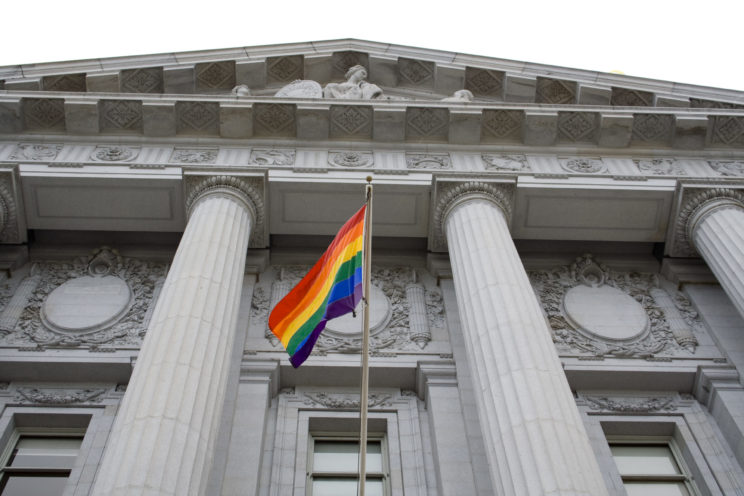On June 15, 2020, the U.S. Supreme Court gave the LGBTQ community an unexpected gift for Pride Month, ruling 6-3 in Bostock v. Clayton County, Georgia that discrimination based on sexual orientation or gender identity is prohibited under Title VII of the 1964 Civil Rights Act. The decision, written by Trump appointee Neil Gorsuch and joined by Chief Justice John Roberts along with the four traditionally liberal justices, applies a radically simple textualist approach to the question of whether discrimination against LGBTQ people can be considered a form of sex discrimination.
Lower federal courts and agencies like the U.S. Equal Employment Opportunity Commission (EEOC) have used a variety of approaches to hold with increasing unanimity over the last 20 years that LGBTQ people are protected by sex discrimination laws like Title VII and Title IX. Many of those decisions relied on the Supreme Court’s 1989 Price Waterhouse v. Hopkins decision which held that denying a promotion to a woman who was seen as violating gender stereotypes by acting too “masculine” and “aggressive” was sex discrimination.
Justice Gorsuch’s opinion in Bostock concludes more simply that discrimination based on sexual orientation and gender identity is always sex discrimination, because it is impossible even to define terms like “gay” or “transgender” without reference to gender. Justice Gorsuch concludes, “An employer who fires an individual for being homosexual or transgender fires that person for traits or actions it would not have questioned in members of a different sex.” That is sex discrimination. End of story.
The majority opinion is also noteworthy for the fundamental respect it shows Aimee Stephens, the transgender plaintiff in one of the three cases combined in this decision, who sadly passed away earlier this year. Justice Gorsuch consistently uses female pronouns and honorifics to refer to Ms. Stephens and describes in surprisingly empathetic terms the “despair and loneliness” she experienced as a result of gender dysphoria and the shocking decision of her employer to terminate her employment shortly after she disclosed that she would be transitioning to live as a woman. This case did not explicitly involve questions of gender recognition, such as restroom access, which will no doubt be addressed in future cases. But the respect the majority shows Ms. Stephens sends an important signal that the Court recognizes that transgender people deserve not only basic protection from firing, but respect for who they are.
The Bar Association of San Francisco (BASF) is hosting a CLE program about the Bostock decision on Wednesday, July 8 at 5:00 p.m.: Supreme Court’s LGBTQ Discrimination Decisions, Hot off the Press.
Register for the program here: https://bit.ly/3dEs45T
About the Author:
Ilona Turner is the co-chair of BASF’s Equality Committee on LGBT Issues. She has her own ADR practice, Turner Dispute Resolution, based in Oakland.



